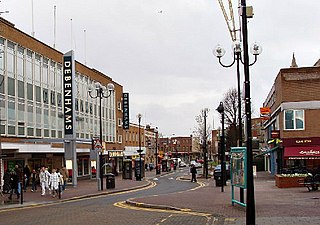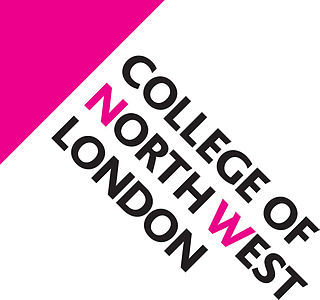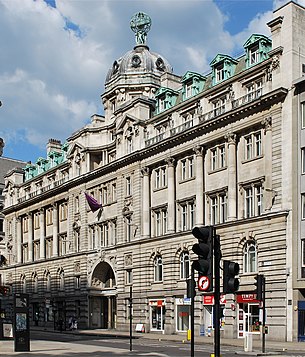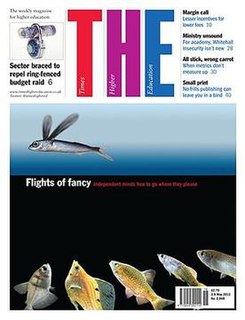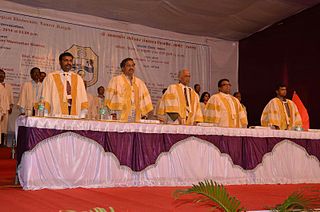
Man Mohan Sharma FREng is an Indian chemical engineer. He was educated at Jodhpur, Mumbai and Cambridge. At the age of 27 years, he was appointed Professor of Chemical Engineering in the Institute of Chemical Technology (UDCT), Mumbai. He later went on to become the Director of Institute of Chemical Technology, the first chemical engineering professor to do so from ICT.

George Barger FRS FRSE FCS LLD was a British chemist.
John Francis "Jack" Richardson OBE was a UK chemical engineering academic, notable for his research into multiphase flow and rheology, but best known for a series of textbooks.
John Stuart Anderson FRS, FAA, was a British and Australian scientist who was Professor of Chemistry at the University of Melbourne and Professor of Inorganic Chemistry at the University of Oxford.
Peter Victor Danckwerts, was a chemical engineer who pioneered the concept of the residence time distribution. In 1940, during the Second World War, he was awarded the George Cross for his work in defusing Parachute mines. He later became Shell Professor of Chemical Engineering at the University of Cambridge from 1959 to 1977 and a Fellow of Pembroke College, Cambridge.
Lynn Faith Gladden, is the Shell Professor of Chemical Engineering at the University of Cambridge. She served as Pro-vice-chancellor for research from 2010 to 2016. Since October 2018 she has been executive chair at the EPSRC.
John Frank Davidson FRS FREng FIChemE is a British chemical engineer and former Shell Professor of Chemical Engineering at the University of Cambridge. He is regarded as the founding father of the Fluidization in Chemical Engineering.
Alexander Lamb Cullen, was a British electrical engineer.
John Frederick Knott OBE FRS FREng was an English metallurgist and materials scientist.
John Stuart Archer, CBE, FRSE, FREng was Vice-Chancellor and Principal of Heriot-Watt University from 1997 to 2006.
The UCL Faculty of Engineering Sciences is one of the 11 constituent faculties of University College London (UCL). The Faculty, the UCL Faculty of Mathematical and Physical Sciences and the UCL Faculty of the Built Envirornment together form the UCL School of the Built Environment, Engineering and Mathematical and Physical Sciences.
Sir Eric Keightley Rideal, was an English physical chemist. He worked on a wide range of subjects, including electrochemistry, chemical kinetics, catalysis, electrophoresis, colloids and surface chemistry. He is best known for the Eley–Rideal mechanism, which he proposed in 1938 with Daniel D. Eley. He is also known for the textbook that he authored, An Introduction to Surface Chemistry (1926), and was awarded honours for the research he carried out during both World Wars and for his services to chemistry.
Alexander Oliver Rankine was a British physicist who worked on the viscosity of gases, molecular dynamics, optics, acoustics and geophysics.

Norman Neill Greenwood FRS CChem FRSC was an Australian-British chemist and Emeritus Professor at the University of Leeds. He is probably best known for the innovative textbook Chemistry of the Elements, co-authored with Alan Earnshaw, first published in 1984.
Howard Allaker Chase ScD, FREng is a British academic and chemical engineer. He is Head of the School of Technology and Professor of Biochemical Engineering at the University of Cambridge. From 1998 to 2006 he was Head of the Department of Chemical Engineering at the University of Cambridge. Chase has been a Fellow of the Royal Academy of Engineering since 2005. He is also a Fellow of the Institution of Chemical Engineers, a Member of the Royal Society of Chemistry, a Chartered Engineer, a Chartered Chemist, and a Chartered Scientist. In 2010 he was awarded the Donald Medal, an award of the Institution of Chemical Engineers, in recognition of his industrially related research in the field of bioseparations technology. Chase was an undergraduate, and a research student (Biochemistry) at Magdalene College, Cambridge between 1972 and 1978. He held a Research Fellowship at St John’s College, Cambridge from 1978 to 1982. In 1984 he was elected to a Fellowship at Magdalene College, Cambridge where he became Director of Studies in Chemical Engineering. He was Tutor for Graduate Students 1987-1994, Tutor 1994-1996 and Senior Tutor 1993-1996.
Peter Gray FRS was Professor of Physical Chemistry at the University of Leeds and subsequently Master of Gonville and Caius College, Cambridge.
Professor John Garside, CBE FREng is a British chemical engineer who was the last Vice-Chancellor of UMIST.
Peter Bernard David de la Mare was a New Zealand physical organic chemist.
Prof Kenneth George Denbigh FRS was an English chemical engineer and scientific philosopher. He wrote much on the issue of time in relation to thermodynamics. He was an associate of the Russian chemist Georgi Gladyshev.
Raffaella Ocone is Professor of Chemical Engineering at Heriot-Watt University and a Fellow of the Royal Academy of Engineering. In 2006 she was awarded the title Cavaliere of the Order of Merit of the Italian Republic and in the 2019 New Year Honours she was appointed OBE.



